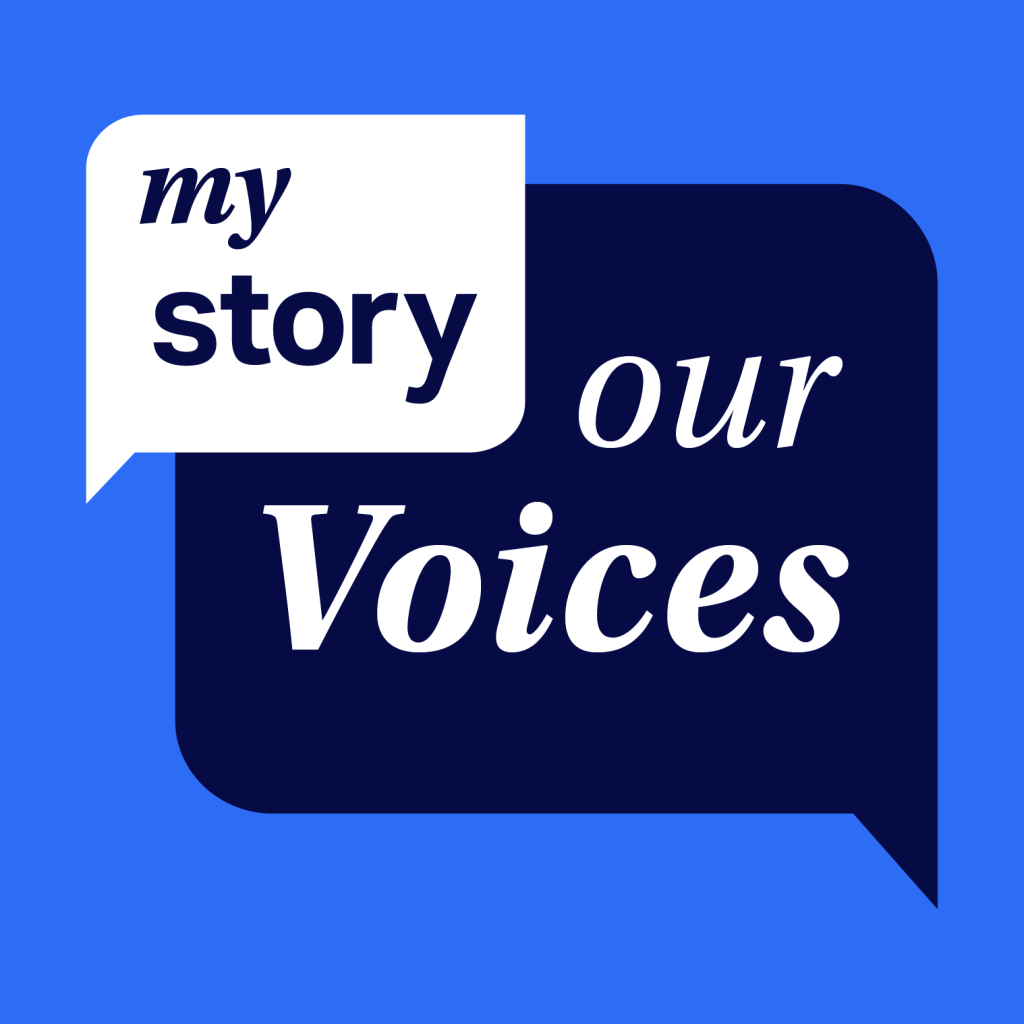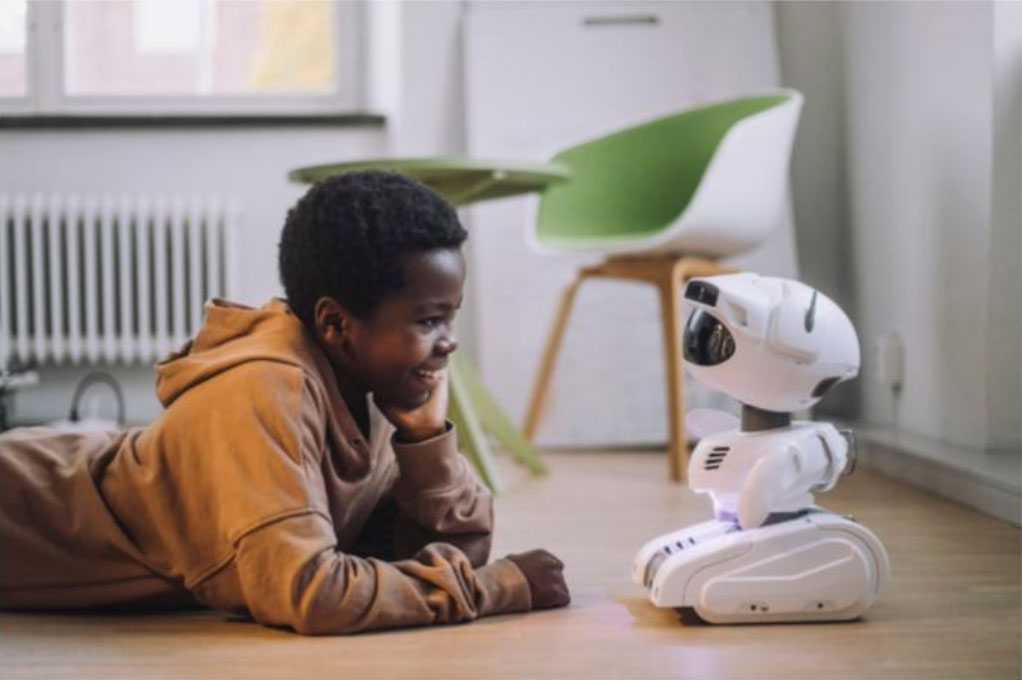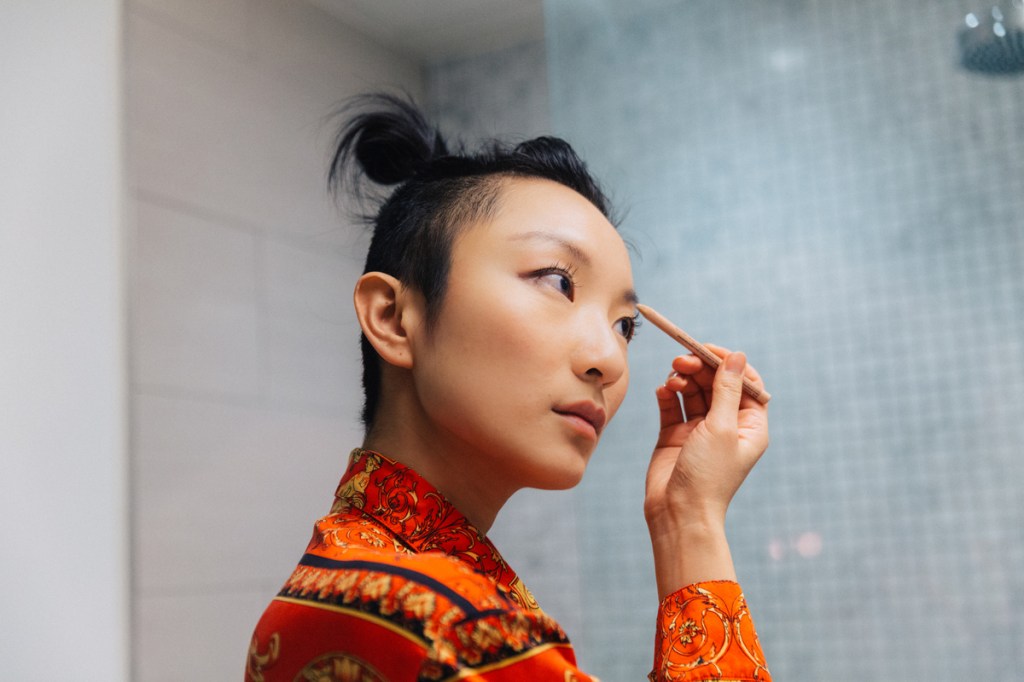Join hosts Funda Kalemci and James Anderson as they discuss what personal and professional evolution means to guest SVP, Culture, Workforce Transformation & Chief Diversity Officer Myriam Vidalon. Plus listen as the hosts give a special announcement regarding the evolution of NIQ’s DEI podcast.

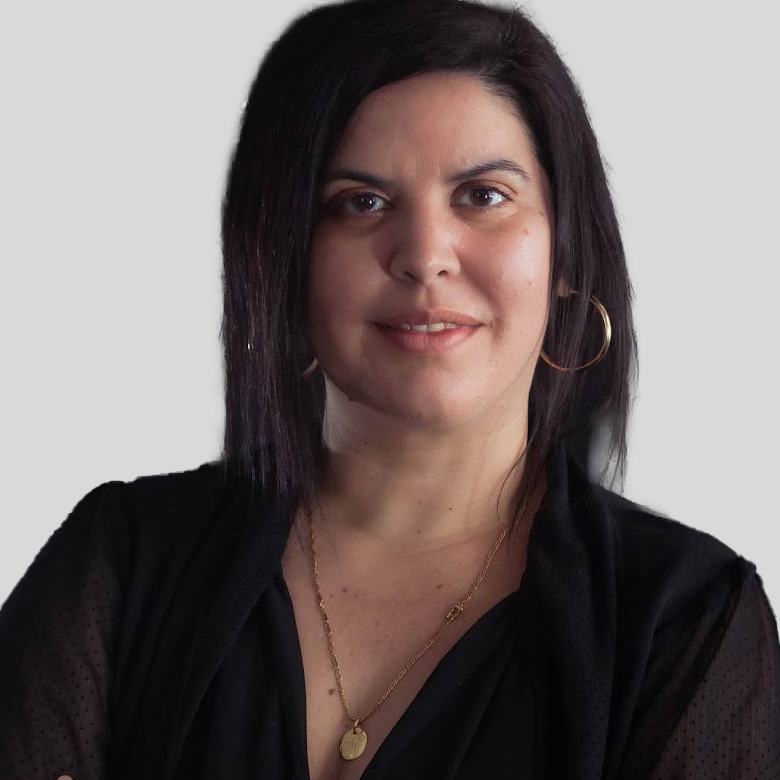
Myriam Vidalon
Florida, United States
SVP, Culture, Workforce Transformation & Chief Diversity Officer
Myriam Vidalon was named NielsenIQ’s first Chief Diversity, Talent, and Culture Officer in 2022. In this role, she leads global, enterprise-wide efforts that positively impact every aspect of the employee experience and talent lifecycle. Most critically, she ensures that Diversity, Equity & Inclusion are embedded within NielsenIQ’s teams, products, and decision-making.
Myriam’s career began at NielsenIQ in 2003, and her contributions include developing NielsenIQ’s global Employee Resource Groups, creating the company’s flexible workplace strategy, and redesigning a highly inclusive performance management process. She actively participated in the founding NielsenIQ University and launching our company values and behaviors. You can listen to Myriam talk about how NielsenIQ’s DEI strategy comes to life on the “My Story Our Voices” podcast.
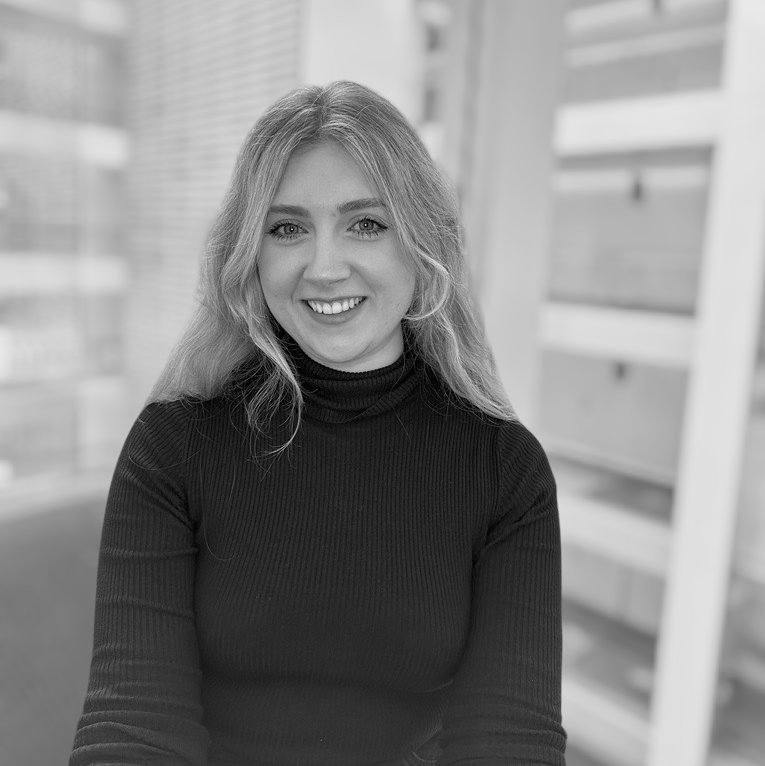
NONE
NONE
NONE
NONE

NONE
NONE
NONE
NONE
Summary
“If you think about what this company stands for, why it exists, it really exists to ensure that we understand the consumer and how can you actually do that if you don’t understand the voices and the experiences of the people that make up this amazing world.” – Myriam Vidalon
Join hosts James Anderson and Funda Kalemci as they reveal an exciting new announcement regarding the evolution of NielsenIQ’s DEI podcast. James and Funda talk with guest Myriam Vidalon, Chief Diversity Officer and Senior VP of Culture and Workforce Transformation at NielsenIQ on the difference between transformation and renovation.
Myriam has spent the past year enabling and integrating the NIQ and GfK businesses, focusing on harmonizing cultures and ways of working. Myriam explains how renovation is improving and evolving existing structures without completely changing them while transformation is a rapid and complete change. The My Story Our Voices podcast’s evolution is seen as a renovation, maintaining its essence while enhancing its impact.
My Story Our Voices focuses on empathy and understanding by sharing personal stories. These stories help humanize colleagues and create a more inclusive work environment. Diverse voices are essential for understanding consumers and fostering innovation as well as encouraging empathy and a broader perspective within the company. The podcast aims to create a platform for sharing diverse experiences, fostering empathy, and driving cultural change within NielsenIQ.
Transcript
Jake Conlin: The views and opinions expressed in this podcast belong to the individuals who share them and do not necessarily represent Nielsen IQ. Note that this podcast discusses sensitive topics that may be triggering for some. For more information specific to this episode, see the episode description.
Hi everyone and welcome to my blank story. A core component of NielsenIQ’s DEI learning series, Me and You. My name is Jake Conlin. And if this is your first time tuning in, then let me tell you what this podcast is all about. In a nutshell, it’s about stories, your stories. We think stories are important because when we tell them we open the door and allow others to see the experiences that shaped us, that challenged us and helped us grow by doing this. We can create a culture where open dialogue is encouraged and we can have a space to discuss important topics in a transparent and courageous manner, so minimize that e-mail tab, mute your chat and take a little break to listen to a NielsenIQ story.
James Anderson: Hello everyone and welcome to another episode of our podcast here at Niq sponsored by Diversity, Equity, and Inclusion. My name is James Anderson and I’m a senior analyst working out of the Toronto, Canada Office on the manufacturing side, my pronouns are he and him, and once again I’m joined by my co-host Funda.
Funda Kalemci: Hi, James. Hello, everyone. Thank you so much for tuning in today. My name is Funda Kalemci. I am based in Turkey and I’m the global leader for diversity, equity, inclusion and well-being. And my pronouns are she and her.
James Anderson: How are you doing today, Funda?
Funda Kalemci: Doing great. This is going to be an amazing episode with a lot of great news for our audience.
James Anderson: Exactly. I know some of our keen, “keen-eared” listeners have probably noticed that I haven’t yet mentioned the name of the podcast…
Funda Kalemci: Mhmmm…
James Anderson: …and that is because I know that we have a special announcement to make about that. Would you like to give us the news?
Funda Kalemci: Absolutely. I would be more than happy too. So, before I get into that, I want to go all the way back and talk a little bit about how this podcast came to life. As our listeners know, we used to call this podcast My “Blank” Story. That was our original name. And the original idea was that for each episode we would tell a story about one theme, and that the “blank” [in our podcast name] would be that theme. So, we had my “joy” story. We had my “resilient” story. So on and so forth.
James Anderson: I remember all this exactly.
Funda Kalemci: Right? So, how this came about was a great, great coincidence. Well, I don’t know if it’s a coincidence, but as the DI team at the time, we were thinking about creating a podcast about storytelling and all of that and our Pride employee resource group was thinking about the same thing and they came to us asking how we can we put together a podcast? And I’m like, well, you know what? You can’t because I want to put together a podcast. But all jokes aside, what we did was, we joined forces as the DEI team and the Pride team…
James Anderson: Mhm.
Funda Kalemci: …and we created My “Blank” Story. But as we all know, all things evolve and – of all things – DEI is the one that evolves the fastest, I guess, and we started, you know, widening our scope…
James Anderson: Mhm.
Funda Kalemci: …and we created a bigger program. Now, we call it [the] “Me and You” series and it serves as one of [the] education and training pieces within our DEI programs at NielsenIQ.
James Anderson: Sort of an umbrella that a lot of our programs sit under.
Funda Kalemci: Exactly, exactly, James. So, one of which is this podcast. So, along the way, our podcast changed a little bit. Instead of having just one story told and then talking to our guest, James and I started talking to our guests even more, so it turned into a conversation more, more than just the storytelling piece. Of course, the stories are always at the heart of our podcast, right, James? And like we, we definitely focus on the stories, but we turned that into a more of a conversational format.
James Anderson: Exactly, yes.
Funda Kalemci: So, within our “Me and You” series, what we wanted to do is, we wanted to showcase we are much bigger than [just] ‘us and them’. ‘Us and them’ can be used as a the divisional [sic, ie: divisive] phrase. What we want to focus on is “Me and You” [to be a] “coming together”. [Meaning] ‘You alone’ are powerful. “Imagine what me and you can do,” was our tag line…
James Anderson: ‘Together.’
Funda Kalemci: Exactly! All of which, are the reasons that we felt the podcast needed a new name. As well as to be in-line with the “Me and You” series, as well. So, James, can you talk a little bit about like the podcast piece as well?
James Anderson: Sure, of course. You touched on it, slightly, where … originally, we would plan out…We would have NIQ associates submit their stories to us and we would, sort of, go through them and we would figure out which ones, at the time – because we were doing a thematic based podcast – we would try to find ones that were ‘joy’ stories or ones that were ‘resilient’ stories. And then, what we would do is, we would have the speaker, the guest, take about the first 3-4 minutes to, kind of, tell us their ‘joy’ story or their ‘resilient’ story and then, once they had, sort of, told the story, the hosts, we would come in and then we would turn it into a bit more of a conversation or extrapolate on certain aspects of the story and how they related to personal development, because we really…what we’re trying to create, what was a safe platform for NIQ Associates to share […] and listen to personal stories that, you know, that affect and impact and shape our [and their] lives in every day. And [also] sometimes, how those things relate to our work life; sometimes how those things relate to our personal lives and how we can incorporate the two [into each other]. But we discovered, as we went along that the format was a little bit rigid and, of course what we always want to do with diversity, equity and inclusion, [was that] we want to break down barriers, we want to break down rigidity, we want to find crossover, right? And so..
Funda Kalemci: Ohh, the intersectionalities [sic], right James?
James Anderson: All the intersectionalities [sic], exactly. And so over time, we began to realize that [by] making things more of a conversation [it] not only made it seem more natural – the flow more natural – but also, it took the pressure off the guests to “right up front”…
Funda Kalemci: Mhm!
James Anderson: …to deliver their story. And, also, it’s been a process. We’ve been at this for about 3 years, roughly, and even our ‘ways-of-working’ have changed, over time. It used to be that everyone would show up at the appointed time, hit record and ‘off we would go’ with a very loose […] kind of structure and, over time, we discovered that doing a little bit of a rehearsal, beforehand, or a little bit of an advanced ‘meet and greet’ – that kind of thing – really started to help because we wanted to be able to really plan out, a little bit more, [of] what we wanted to discuss. What sort of things the guest wanted to […] bring up. And essentially, [then] we’ll try to weave, whatever the story was, together into, kind of, a more cohesive, sort of, whole. So, that is all, basically, to say that the name has evolved over time.
Funda Kalemci: Mm-hmm.
James Anderson: And that is why we have decided to let the name evolve and become “My story Our Voices”, which aligns with the notion of our ‘umbrella’ group: “Me and you”.
Funda Kalemci: Exactly. Thank you so much for that wonderful overview, James. And I just wanted to reiterate that [the phrase], “‘Me and You’ is much bigger than ‘Us and Them’”, was the tagline that we used for our umbrella program and ‘My Story”, again, like as I mentioned earlier, you alone are powerful, but imagine what you can do when we bring me and you, together. So, “My Story” [alone] turns into “Our Voices”, overall. So that’s now our tagline for our podcast.
James Anderson: Exactly. And it’s such a powerful metaphor when you think about it. And I think it’s time to mention that not only do podcasts evolve over time, but people do as well, which is why we are very excited today to welcome back one of our original hosts – and [original] sponsors of the podcast, Myriam Vidalon, whose own role here at NIQ, has also changed and evolved over time. She’s now the CEO and Senior Vice President of Culture and Workforce Transformation. Myriam, hello and welcome back to the podcast!
Myriam Vidalon: Thank you, James. Thank you, Funda. Hi, everyone. Excited to be here, again!
James Anderson: So, can you tell us a little bit about your role [that] now you have here at NIQ?
Myriam Vidalon: Yeah. So, I continue to be the Chief Diversity Officer. I actually stepped away for a year to go do an assignment and I know we’re going to talk about that, but I am back. And, at the core, my work continues to be to ensure that we are building an inclusive, engaging, [and] differentiated culture at NIQ; where we have talent processes that are inclusive where people can be themselves and they can achieve great things at the company.
Funda Kalemci: Awesome, Myriam, so happy to have you back. I want to start us off [by] tying what you’re doing [now] with [ie: back to] the podcast, because you and I were at the start of the very beginning of this podcast. And with the podcast, I want to talk a little bit about change or transformation, but I know you have a more of a favorite word to use instead. Can you give us a little bit about your perspective on ‘transformation’?
Myriam Vidalon: Yeah, for me, I would say, to me, transformation is about changing something completely, right? And rapidly. But when I think about what you guys have been doing with the podcast and what we’re here to communicate, today, is more about a ‘renovation’ of the podcast. Because, if you think about it, based on what you and James were discussing, the ‘essence’, the key [point] of the podcast continues to be the same, right? So the essence is: we are all becoming a little wiser because we are sharing our lived experiences. We’re listening with empathy; we’re learning new ways of thinking and new ways that people experience life in general, and that makes you wiser. And that’s the core of this podcast – [and it] will continue to be – but you’re ‘renovating’ it, right? To make it feel better, to make it be more impactful and easy, in part. The impact and the power that these stories can bring to the table by allowing this type of conversation and blowing off ideas. I think that has a difference in transforming something. You transform something when you wanted to work completely different, and I don’t think that what you’re doing here. And I know that we talked about it, maybe yesterday or last week, but it’s very similar to career changes, right? At times, in my case, I didn’t transform my career. It was almost like an evolution, [or] a small renovation: to learn new skills and then come back with those new skills to continue to do work that is important to me.
James Anderson: It’s a great metaphor. I love the idea of ‘renovation’ because, you know, to your point, when we look at the podcast, as well, we didn’t want to throw out everything that we had achieved because we had developed over time. We had found new processes, new ways of doing things, but you know, the core still remained the same. It was, basically, if you’re just renovating a house, usually you keep the four walls. For the most part, you keep the superstructure the same, but you just, kind of, you know, [add] a new coat of paint. You move a wall; you, kind of, shift things around a little bit, try and make a better overall picture. And I love that idea of renovation where…because it’s very easy, in our world nowadays, to think, well, this isn’t working. I need to do something completely different and I’m going to forget about things that I have learned. My role at IQ has also transformed…my life has transformed because I originally [ie: previously] worked in [a] purely in customer service, frontline, customer service role etcetera, etcetera. And when I came to NIQ, I thought I’m not going to be able to use any of that because now I’m doing data and analysis and all this kind of stuff, completely forgetting that I would be doing presentations. I would be doing [ie: building] client relationships; I would be working with people. So, all of the things that I thought I would not be able to use [anymore], I can still use! They just have been renovated and [maybe] they look slightly different now.
Myriam Vidalon: Yes, [I] completely agree, James. And that’s the exciting part because we can all renovate, right? Because there’s so many things about ourselves, about what we do, who we are, that it is great [to discover] and we don’t need to transform it. We don’t need to be someone different, but [rather] we need to continue to upgrade and fix and change and evolve things a little bit just to be our true best selves.
Funda Kalemci: I love that, Myriam. And that’s a great segue into your ‘renovation’, your personal or professional ‘renovation’. Can you talk a little bit about your past year-and-a-half? You were in DEI and then you were not in DEI and now you’re back in DEI. But, in the meantime, you have done quite a lot in the company and I would love for our audience to hear from you what it was all about.
Myriam Vidalon: Yeah. Thank you, Funda. Yeah, so, I got the opportunity to work on an assignment as the Integration Leader on the HR side for our NIQ and GfK businesses.
So I have the opportunity to work with both teams to combine the organizations to think about how do we enable our managers to work across the companies, to put a plan on how we will harmonize our employee experience or ways of working. But one thing that you mentioned is I was in DEI and then I wasn’t in DEI, can I think that there’s a renovation piece comes in, because at core, DEI is not what I see as ‘something’. It’s more about a way of working, a culture, a thinking, an appreciation of other people and an appreciation of what we can achieve together when we are not thinking the same or feeling the same. But we have one core goal which is to do the best so that we can unlock the power of our community or collective being. Right. So I think that I continue to embrace those components and a big part of the integration was how do we bring our cultures together? Right. How do we align our ways of working? How do we continue to ensure that things are important, continue to be important as we transform the way that we do work in the organization or more so in the way that we renovate the way we do work in the organization as a joint company. So I think it was a continuation. And as always, when something is part of your essence, you continue to care about it. So as I was looking at the organization, the process is always at the core: how do we ensure that we continue to drive our cultures to become one and that is time right? It’s an evolution is a step-by-step process. So, I think we started that journey last year, we will continue to do it and now with my new assignment this year, which combines my DEI talent and performance, management with the integration of these great companies, it is a continuation of that culture revolution.
Funda Kalemci: That’s exactly what I wanted our audience to hear and thank you so much for bringing that to the forefront, because everything we do from a DEI perspective, our goal is to embed it to everything we’re doing as a company, especially in our talent processes and our culture. So your previous and current role as the Chief Diversity Officer of the company has played a tremendous role, making sure that we have an inclusive, united culture with those two companies. So thank you so much for that. James, go ahead.
James Anderson: Yeah, I just thought I would ask a really simple, straightforward kind of question. If we step back and just take a look at what are we trying to do with the podcast? Or why is this all important? Myriam, you touched on it a little bit when you mentioned something a little bit about the importance of diverse voices at the table, which is kind of what we’re trying to do, especially with we’re focusing on that with the podcast. But the importance of having a multitude of voices at the table where instead of it being a challenge, it can be an opportunity to hear other voices. How important do you think that is to the kind of work that we do?
Myriam Vidalon: Yeah, well, it is at the core of what we do. If you think about what this company stands for, why it exists, it really exists to ensure that we understand the consumer and how can you actually do that if you don’t understand the voices and the experiences of the people that make up this amazing world, right? And I think the impact that we have in these 40,000 people company is to start bringing to the table to share experiences, to start empathizing, to start looking at the world from a different perspective, from a different lens. I think as you evolve and you continue to share, right, with each other, share your experiences, share how you see the world, you almost start to deconstruct things that you’ve puzzled in your mind, right? And you start to read out of ignorance and you start to evolve your thinking. So that you can anticipate you can be better at unlocking stories out of data, which is one thing that. You do, James.
James Anderson: Right, absolutely.
Myriam Vidalon: Dissipating so much better when you start listening with a different intention.
Funda Kalemci: I love that. And Myriam, you know what? You are the person who introduced me to formal storytelling. I remember when I first started in DEI, you asked me what my story was, and I was kind of flabbergasted. I was like, what does he mean by that? Of course, now I know. This was like 7 years ago, but along the way, not only I have learned the importance of storytelling and the power of stories, it became this amazing project, our podcast. So, out of that, added storytelling power, what would this podcast be? The value add for our listeners? What is it for you? For our listeners to know?
Myriam Vidalon: Listen, I would say that I mean, all, right? Since we started the podcast, and I know it has been evolving and now, it’s being renovated. But if you look back at the essence, right, of when we started, I mean all of the amazing strengths, the experiences, the wisdom that our colleagues bring to the table, and these are the people that we work with side by side. We are giving in meetings, we are collecting information, we are doing projects, we are working on data for our clients, on storytelling, on insight. But how often do we think back in human eyes? The person that is behind the screen, like how many times do we pause? To truly value the person who is behind the screen so that we can learn from them, so that we can evolve the way we think, the way we work, the way we act. So to me, this podcast is a catalyst so that we appreciate the amazing amount of wealth of experiences and knowledge and wisdom that we have within this 40,000 people organization. Once you start appreciating and you humanize the person working next to you, you have a new set of respect and value for them. So when you are working on a project team and perhaps you’re not seeing eye to eye, then you come back and you empathize because you remember the person behind the spreadsheet, you remember the person behind the phone, right? And then I mean the opportunities are endless once you start appreciating that this person has something to offer, something of value, then you start including them to opine and give their input to important business decisions or important topics, right, of engagement, of leadership, of team. Once you start unlocking that wisdom and that inclusiveness, then you really start innovating as an organization. And the other thing is, as people start telling their stories, even if it’s through their own story for a few minutes and then having questions, or if it’s through a conversation, you start empowering that individual, right? Because you empower yourself with what you see and all of a sudden you pause and you look back and you realize, wow, yes, what a journey I have lived. I can contribute to that journey to how I show up to work every day. There are stats that show that people come to work and they don’t feel they can be their authentic self, in the world. We pull those stats when it’s Hispanic Heritage Month or when there is Proud Month, but honestly, if you think about it, you need to break down those barriers, because how can someone be their full self? How can you grow to be the next level of C-suite when you show up to a workplace where you feel you need to hide who you are? Where you feel your voice is not as valuable as a voice next door? You can’t. So all in all, with this podcast, it empowers people and let you know that your voice matters, that your experience brings wealth to us as individuals, as an organization, as a community, that you can be yourself, that you can walk into a room and you can give your opinion and it’s valuable, and you count, regardless of who you are.
James Anderson: Myriam, what role do you think listening has in all of that? You touched on a moment ago where you said something which was very powerful, which was listening was a different intention. So in this process that we’re trying to create, unlocking those stories, what role do you think? How can listening enable that breaking down of barriers?
Myriam Vidalon: They say, and I remember I worked, my first job was in training. And I remember we had this saying that there is a percentage, a very small percentage, maybe 20%, comes from lecture. There is an 80% that comes from, you know, doing another, I forget the breakout we might need that, but there’s this percentage that you learn from different sources, right? And I think companies have legitimately tried to do training sessions and training people on different ways of thinking, but ultimately, right, for you to appreciate and see something from a different standpoint, you need to hear the story, that’s how we learn and it’s ancient history, right. If you think of the most ancient books on morals or even principles of culture, they are based on stories. That’s how our former fathers have learned, right, when writing wasn’t a thing. They told stories and were no different nowadays. So to me, telling the story is the first step to really unlocking education and understanding, and I’m just looking at this story of something else and check the box, then of course, I’m not going to truly understand the other person’s viewpoint. But if I listen with the intent to understand, what makes this individual, what makes up their own way of thinking, and how did they approach things? And what else do they have to overcome, in what ways do they live their life today? Then all of a sudden my construct starts to change because I’m humanizing that person. And I’m learning through the stories, not like someone telling me you need to respect and this is how we do things. I’m learning because now we appreciate that this person has their own solos and at the end of the day, we’re not that different, right? If you think about it at the end of the day, we’re both humans and we live on this earth. And both of us have struggles and we have good days and we have bad days and then you start to appreciate that human element and you start to appreciate that we can be one and we can drive and do things in a different way to ensure that you are good and that I am good and together we can be better.
Funda Kalemci: So Myriam, one big aspect of your job is the company culture and I have been listening in awe of everything you’ve been talking about, the storytelling and the listening. How does all of that feed into a company culture? How does it help us create a more inclusive company culture where everyone can be themselves and be present with no need for hiding anything?
Myriam Vidalon: Thank you Funda. To me, putting culture on the job title is a scary step, but that I took a few years ago and the reason it’s scary is because culture is so much bigger than what you can put on a PowerPoint slide and say and tell people: ‘this is our culture starting tomorrow’, right, I think the story bending on the side of valuing each other, respecting each other, having this sense of integrity, this commitment to integrity is a good first step because we start to see each other as being almost like crewmates in this spaceship. So using analogy but I think it’s important as well that somebody is thinking about it and that’s why I I think it’s a little scary, but it’s also necessary. And this is the reason when you think about all of us, in our case, 40,000 people working together, right, and you think about even in your own family, think of your, I know you have children Funda in your case and you have your husband as well. So you think about your family dynamics. Do you all think the same? Do you all perceive things the same way? Do you react the same way to things that happen in life?
Funda Kalemci: Absolutely not haha.
Myriam Vidalon: So how did you align the way that you make decisions as a family or the way that you think something is acceptable? It is not acceptable. It’s hard.
Funda Kalemci: It is. It absolutely is.
Myriam Vidalon: So to me, it’s very similar when I think about our company, right? How do you align 40,000 people to think the same way, to respond, to make decisions in the same way? You really can’t just snap your fingers and get it done. So go turn to miss about ways of working. To me, it is about how we work with each other and how do we get stuff done in the organization? So when I think about the best way to start aligning that comes through principles in our case, like our principles are in North Star, there are compass that tells you, hey, here 40,000 people. If we think about how do we make decisions, this is one of the pillars. This is one of the principles that we use as a guiding post to say yeah, I’m gonna decide in this way or this is important to me. If I think about our principles on Community integrity, like one important piece is to ensure that we have a culture that makes us proud, but underneath that can mean different things to you and to me, right. We have a set of goals and we have a set of watchouts that we position on the side and that is a way to crystallize, right? What do those make us proud as an organization? How do we come together and define what those are? So when I’m sitting by myself, thinking about how I see the world, right, and what I celebrate and don’t celebrate, I can think of as an organization. We’re working. We’re working as one. One is acceptable, right? How do we want to treat each other? So to me, culture is about that. It’s also about how do we get work done. How are we accountable for results? So if the other person is pending on me to get it, project done. And I don’t submit it on time or I don’t make the date that we were supposed to receive something. I understand that’s not acceptable behavior or that we want to be driven to win. We want to be positive. We want to have a good, clear winning strategy when we come together as an organization because when the company does good, we all start doing good. So I think that to me, this is the cultural component, is aligning on those principles that we say when we’re here working together. This is how we’re gonna get things done so that we can align each other.
Funda Kalemci: I love that and what I want to say is something you said me and when we first had our podcast meeting after you came on board. This feels like old friends reuniting. Thank you so much for joining us today. It’s been amazing. It is so great to have you back and I hope to see you as a host again occasionnally. And I would love to see you as a guest again to keep talking because I know we can talk about all of these topics for a good amount of time.
Myriam Vidalon: Thank you, James. Thank you Funda. I really appreciated the time and thank you so much for making me part of the of the podcast. I appreciate it.
James Anderson: And thank you, Myriam, for joining us today. It has been a wonderful reunion of old friends and that’s all for this episode of our NIQ podcast with the new name, ‘My story, our Voices’. Thank you to my fellow co-host Funda Kalemci, our producer Jessica Arledge, and our audio editors San Nair and Angie Arnold Ott. We’ll be back soon with more stories from our associates from around the world, so be sure to listen in until next time. I’m James Anderson. Thank you for listening.
Jake Conlin: Hey, y’all, it’s Jake again. We hope you’ve enjoyed this episode of my Blank Story. Tune in next time to hear more stories from the NIQ community.
Myriam Vidalon: We can all renovate, right? Because there’s so many things about ourselves, about what we do, who we are that is great and we don’t need to transform it. We don’t need to be someone different, but we need to continue to upgrade and fix and change and evolve things a little bit just to be our true best self.

